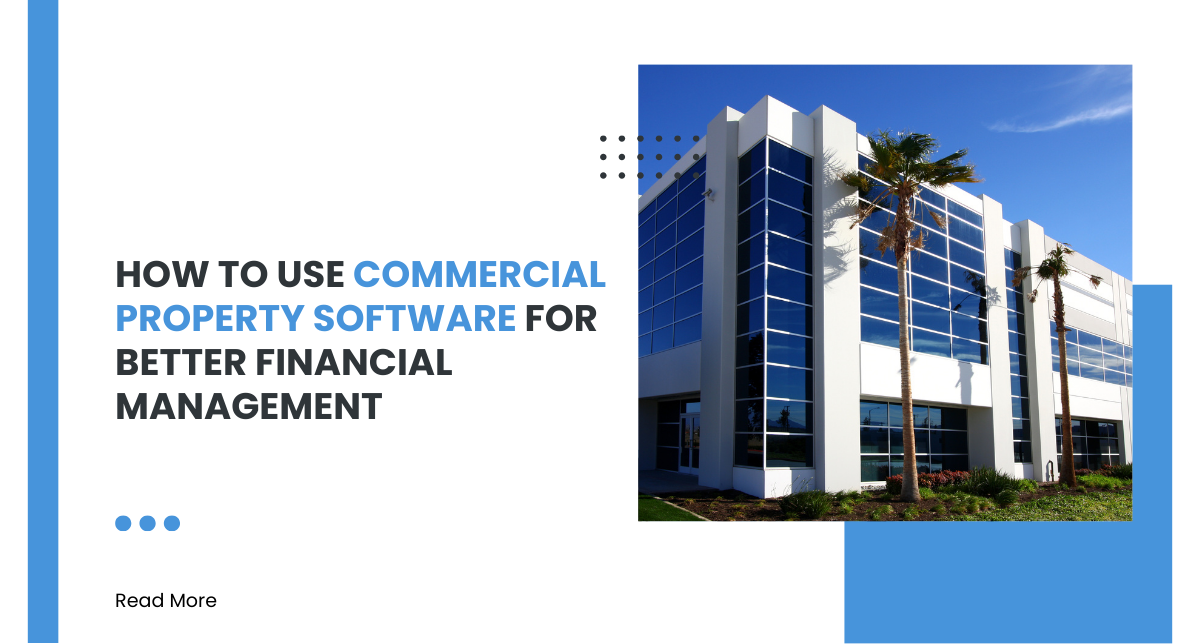Here are some challenges associated with the financial management of commercial properties: multiple properties, tenants, and obligations, which may require the use of strong systems to keep everything in check. Enter commercial property management software, which offers a financial workflow improvement tool that optimizes processes, adds accuracy, and provides information for better decision making.
This manual will tend to how it can use commercial property systems to upgrade accountability for the business and enhance overall efficiency.
1. Rent Collection and Billing Automation
Rent collection is probably one of the most tedious functions in property management. Commercial property software can:
Automated Invoicing:
Produce invoices from the lease agreement and payment schedules for tenants.
Enable Online Payment:
Offer numerous payment modes for tenants such as credit card, bank transfer, or e-wallet.
Track Payment Status:
Real-time monitoring of whether a payment has been made or is still pending for timely collections.
By using automated systems, a property manager can reduce administrative overhead and mitigate delays.
2. Make Lease Management Simple
The majority of the times, lease agreements contain complex financial terms such as escalations, pro-rated charges, or renewal adjustments. This can all be simplified through software. It does the following:
Tracking Lease Payments:
Ensures accuracy in rent billing as per the terms of lease.
Automation of Rent Increase:
Automatic application of escalation clauses without engaging manual computation.
Providing Revenue Predictions:
Forward future income on the basis of existing and upcoming leases.
By automating the financial aspects of leases, fewer errors are made, and more time is saved.
3. Managing Expenses Efficiently for Operations
When it comes to commercial property management, one is dealing with a lot of expenses, which include everything from maintenance to utility bills. Well, software could be just what you need to:
Categorize and Track Expenses:
Create buckets under which to collect costs like maintenance, marketing, or even utilities.
Monitor Budgets:
Set up budgets and then monitor how well the corresponding actual expenses comply; realize where there are variances.
Schedule Recurring Payments:
Automation of trackable expenses such as vendor payments and utility bills.
That’s how easy it becomes to keep track of cost control expenditure or simply budgeting the expense better.
4. Generate Accurate Financial Reports
Another of the many powerful features of commercial property software is the generation of extensive financial reports. These reports can be used for:
Tracking profitability:
Understand income and expenses pertaining to each property.
Preparation of tax documents:
Create financial statements that can be sent directly to tax bodies for taxation to facilitate its timely processing.
Custom reporting options:
Customize reports to suit a very specific need; for example, occupancy trends, maintenance costs, or portfolio performance.
Reports that can be comprehended correctly facilitate transparency and data-driven decisions for both parties.
5. Cb Data to Make Access Easier
Financial managing across these numerous properties is enough to turn the whole thing scattered. Property software is a hub which helps enable one as follows:
Consolidate financial records:
All invoices, receipts, and financial statements are kept at one place.
Secured Sensitive Information:
Keep encrypted financial data and employ role base access protocols.
Collaboration:
By sharing this data, the relevant people can be team members, accountants, or investors.
Having centralized data would actually improve the organization and minimize possibilities of miscommunication.
6. Improve Cash Flow Management
Not only can cash flow being related to financial health, but these really form the basis of keeping the property software. Functions like:
Real Time Income and Expense Tracking:
Knowing when money is coming in and where it is going.
Cash Flow Forecasting:
Predict future revenues and known impending shortfalls using analytics.
Identification of Cost-Saving Opportunities:
Areas of expenditure without losing quality can be cut.
Cash flow management allows one to plan finances and flexibility much better than before.
7. Integrating to Accounting Systems
Most of the property software solutions have been incorporated with their several accounting platforms, be it QuickBooks, Xero, Sage, etc. With these integrations, you can:
- Sync Financial Data: Redundancy from data input is assured to avoid mistakes.
- Ease Filing Taxes: Export financial data when finished with the accounting software for any tax return.
- Consistency of Records: All systems will bear the most accurate financial information.
Integration closes the gap between property management and accounting, thus forming a seamless financial process.
8. Utilize Analytics for Deciding Strategic Directions.
An Advanced Property software currently has analytical tools that produce insights such as:
- High-Earning Investments: Determine which properties earn most and/or cost least.
- Debt Trend Analysis: Track spending to optimize the budget.
- Prospective Investment Tracking: Identifies properties through data that could use improvement or expansion.
Using analytics, align financial strategies with long-term business goals.
Conclusion
It’s not just software for commercial property management; it is an ally with strategy for better management of finances. Benefits from automating the collection and recording of rent and expenses is in report generation and making data-driven decisions.
Now is the time to switch from any or all manual processes or disconnected systems. Investing in commercial property management software makes work faster with fewer errors which leads to increased profit in your bottom line.
Take control of financial management today so that your commercial property operations will flourish.
